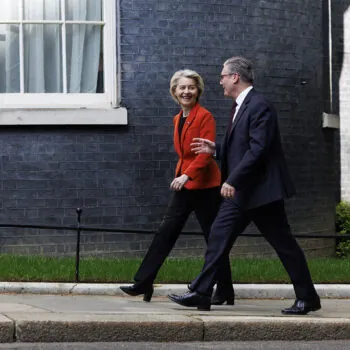On the 6th April, E3G held the second in its series of Thinking Events, this time in Berlin in association with our friends at the European School of Governance.
Discussion Overview
The discussions at the roundtable revealed a shared sense that:
- Europe needs to take global interdependence seriously – its geographical position means that a retreat into ‘Fortress Europe’ is simply not possible. Europe needs to realise that it has a limited window of opportunity of 20 years in which to shape global interdependence in ways that promote security and prosperity for all and which safeguards Europe’s values.
- Europe’s lack of confidence in its economic situation is sapping its ability to act, and political debate undervalues the structural economic and political strengths Europe has relative to other major countries. The Lisbon Agenda discourse around competitiveness is actually increasing fears of job insecurity, and reducing the political space for reform. Europe should go beyond the emphasis of deepening the single market, to focus on how European countries’ unique ability to generate political support for investment in public goods such as education, health, social mobility,environment, and infrastructure can provide the underpinning for continued economic success and improved well-being. Nowhere is this more critical than in generating the investment in innovation, intelligent infrastructure, international cooperation and dynamic markets needed to drive the shift to a low carbon economy.
- The task of making this change is a fundamentally political one, requiring a more commonly shared and externally focused European vision. This is being undermined by current moves towards narrow “nationalistic” concerns and politics in many Member States. Though many choices are rightly made at the national level, Member States need to agree to coalesce around the critical areas where cooperative, investment-driven approaches are needed to secure European prosperity and security. Building a political platform which allows these choices to be legitimately made by European publics is at the core of this challenge.
The event report and list of participants are attached.


